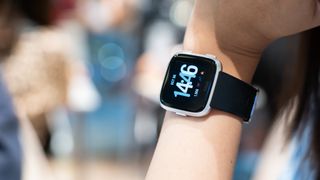EU approves Google's takeover of Fitbit
Deal hinged on Google agreeing to exclude EU customer data from advertising

The European Union has approved Google's takeover of fitness electronics provider Fitbit for $2.1 billion after the tech giant agreed to exclude EU customer data from its advertising.
According to the deal, Google is prohibited from using Fitbit users’ health, fitness, and location data for advertising purposes within the European Economic Area. It must also keep Fitbit data isolated from any other advertising data in a separate “silo”, as well as maintain third-party access to the Fitbit platform.
Lastly, Google agreed not to diminish the user experience of third-party smartwatches when paired with an Android phone.
The commitments, which must be kept for the duration of 10 years, conclude the European Commission’s (EC) four-month investigation into the acquisition, which was first announced in November 2019.
The EC had previously expressed concerns that Google would exploit Fitbit data for targeted advertising, exclude third parties from the Fitbit platform, and negatively affect the compatibility of products from rival manufacturers using Google's Android operating system.
However, on Thursday the executive vice-president of the EC, Margrethe Vestager, said that the acquisition can be approved as Google’s “commitments will ensure that the market for wearables and the nascent digital health space will remain open and competitive”.
“The commitments will determine how Google can use the data collected for ad purposes, how interoperability between competing wearables and Android will be safeguarded and how users can continue to share health and fitness data, if they choose to,” she added.
Get the ITPro. daily newsletter
Receive our latest news, industry updates, featured resources and more. Sign up today to receive our FREE report on AI cyber crime & security - newly updated for 2024.
The Commission’s investigation concluded that Fitbit holds “a limited market share in Europe in the fast-growing smartwatch segment”, which also includes the presence of competing tech giants such as Apple, Garmin, and Samsung.
“The proposed transaction leads to very limited horizontal overlaps between the activities of Google and Fitbit,” ruled the EC.
Prior to the launch of the investigation, 20 advocacy groups from the US, Europe, and Latin America issued a joint statement claiming that Google could exploit Fitbit’s data collection capabilities to strengthen its online advertising, while also establishing “a commanding position in digital and related health markets, depriving competitors of the ability to compete effectively.”
Having only graduated from City University in 2019, Sabina has already demonstrated her abilities as a keen writer and effective journalist. Currently a content writer for Drapers, Sabina spent a number of years writing for ITPro, specialising in networking and telecommunications, as well as charting the efforts of technology companies to improve their inclusion and diversity strategies, a topic close to her heart.
Sabina has also held a number of editorial roles at Harper's Bazaar, Cube Collective, and HighClouds.





